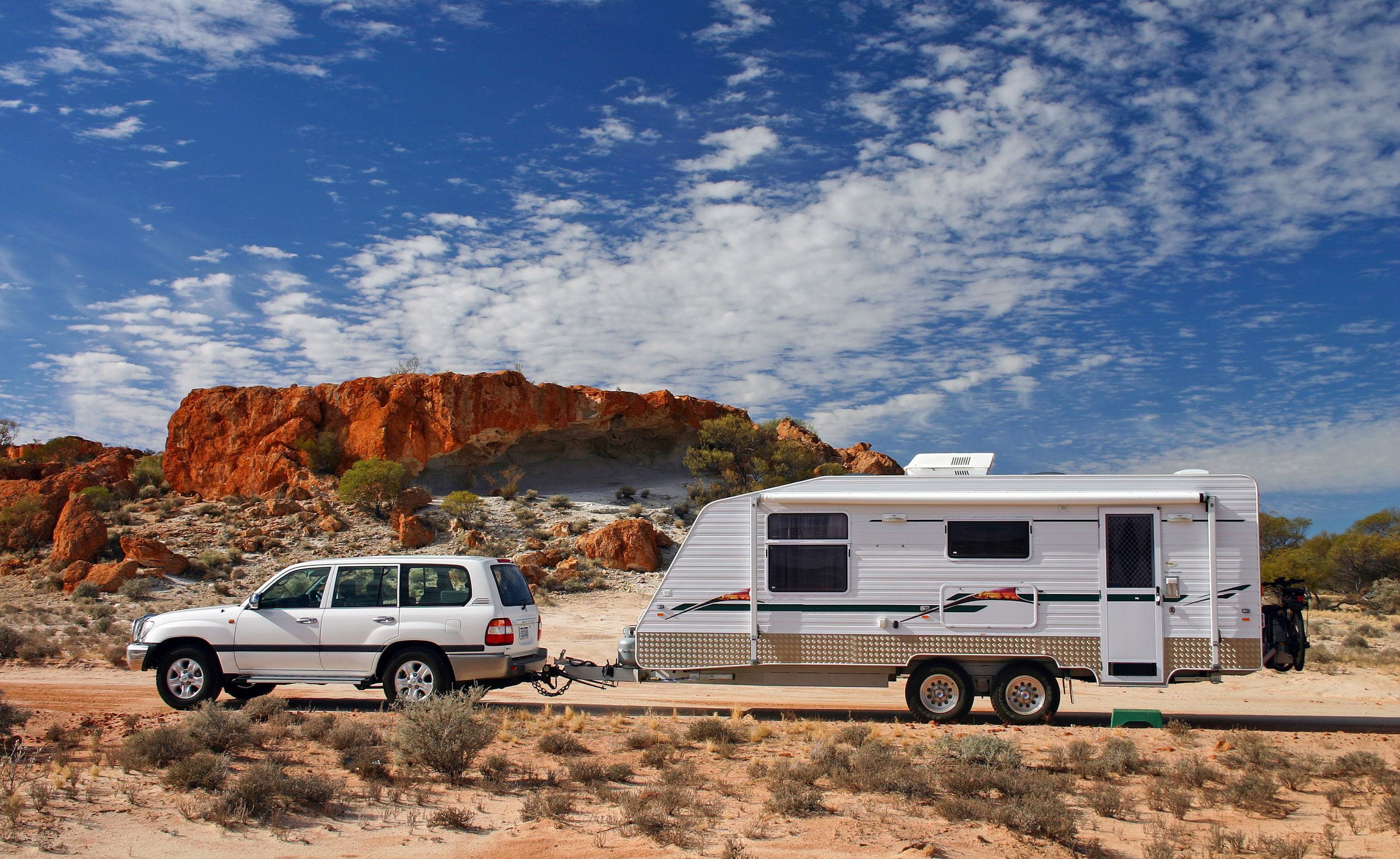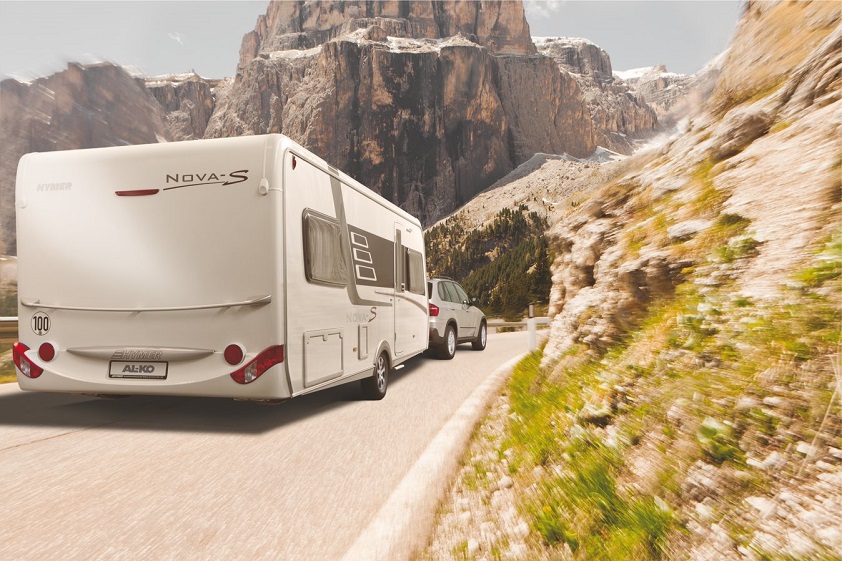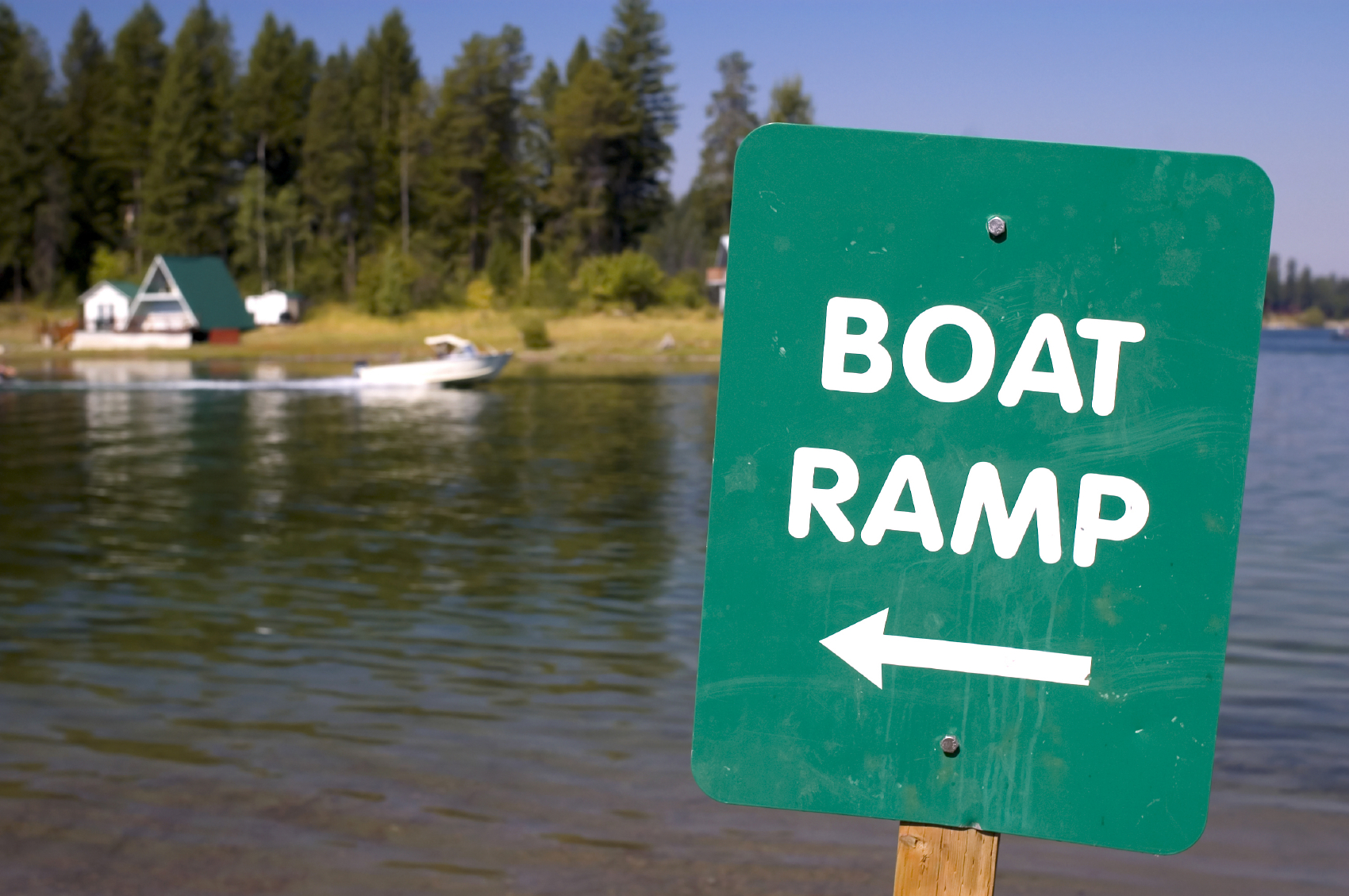The benefits of being out on the road are endless, but there are several important things to know about caravanning which can make all the difference to your trip.
There’s nothing as liberating as being on the road with your home attached, ready to make any place your sanctuary. The freedom that comes with this lifestyle is hard to beat, which is why it has become an increasingly popular choice for many Australians. Fortunately, the land mass of our fair nation is among the biggest in the world, which makes it perfect for long, offroad adventures. Whether you’re taking on the mighty Big Lap, enjoying a moderate jaunt to the Top End or just doing a small trip through the Yarra Valley, there are universal caravanning truths which apply to all. Read on to discover five important things all caravanners should know before embarking on a tour, and some products which could make your life on the road a whole lot easier.
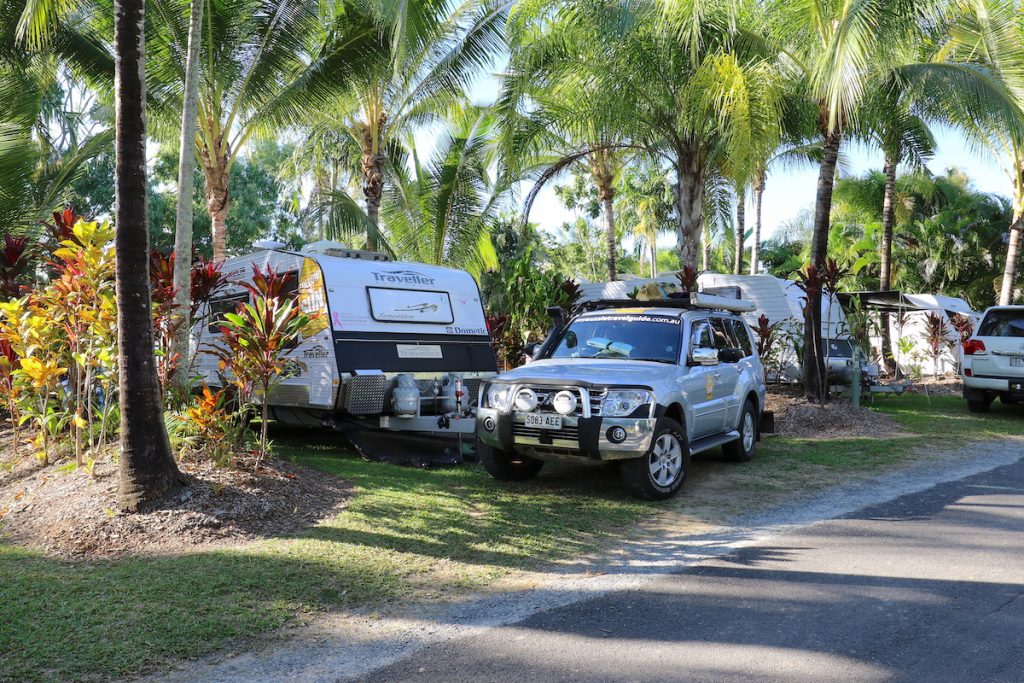
Without a doubt the most critical part of caravanning is having an adequate setup between your van and tow vehicle and being able to control this setup safely. Towing a caravan is no easy feat. With some van and tow vehicle configurations being upwards of 15 metres long, it can be like driving a truck. In fact, most states in Australia require you to have a light truck licence when towing a rig over a certain weight. At present, the law is if the GVM (Gross Vehicle Mass) of your tow vehicle exceeds 4500kg, you need a light truck licence or equivalent to legally drive it.
Being able to successfully and comfortably tow a caravan comes with years of practical experience. If you’ve never towed a van or are an unconfident driver, taking a caravan driving course can teach you all the necessary skills and allow you to practice them in a controlled environment. There is added responsibility on the road when towing a large rig, so ensuring you can handle this responsibility is an important safety consideration.
Some great tips for towing a caravan include (from the VicRoads website):
- Towing decreases acceleration and braking ability — be aware of this, especially when approaching corners
- Leave more space than usual between you and the vehicle in front of you, and allow extra time and space if you are turning into traffic
- Reversing with a caravan is difficult — make sure you’ve had plenty of practice in a safe environment first
- Ensure load distributing hitches are set up properly and the caravan is loaded correctly — this will reduce the chance of the caravan swaying
- Be careful when driving in poor conditions or in high winds
- When overtaking, allow more time and distance and make sure you are well past the vehicle before moving back into the lane
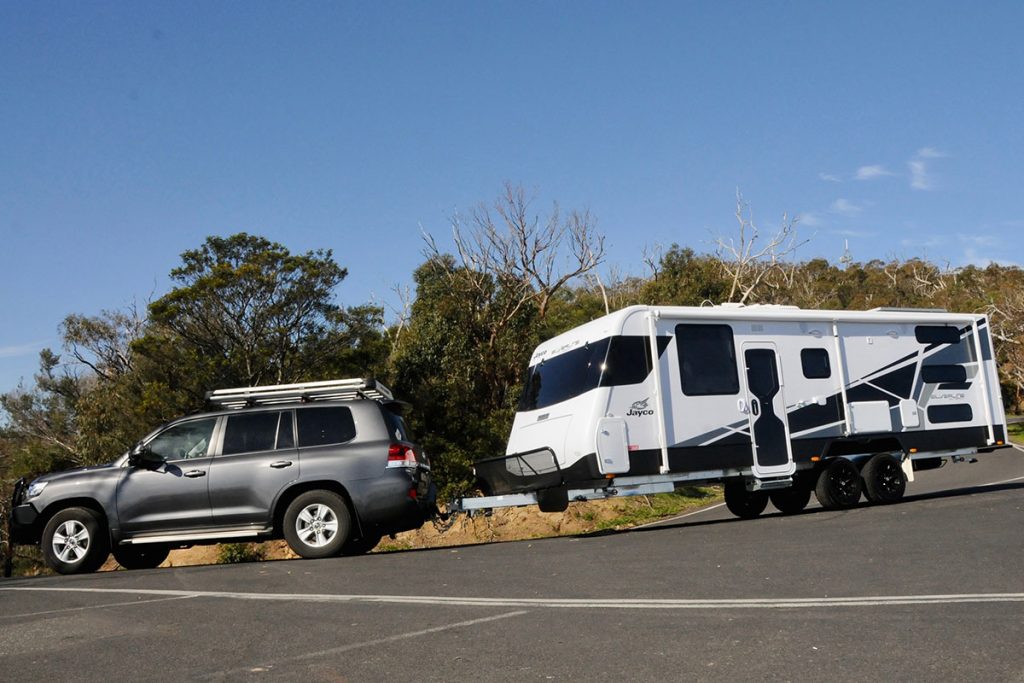
Apart from perfecting your towing skills, there are a range of aftermarket products available which make handling a caravan much easier. An incredible product is AL-KO’s Tow Assist — the world’s first caravan braking system with ABS and sway mitigation. Developed in collaboration with Bosch, this incredible technology allows you to be in complete control of your rig while also decreasing the chance of jack-knifing your trailer during panic or dynamic braking, keeps your trailer in line with your tow vehicle during sway events and quickly applies and disengages brakes without driver input.
Another incredible product from AL-KO is its iQ7 Electronic Air/Hydraulic Brake Booster. As previously mentioned, towing decreases braking ability, which means you need to be mindful and prepared whenever you hit the brakes in your tow vehicle. Braking at the last minute and not having enough room in front of you can cause an accident, so having a product like the iQ7 is a superb assistant on this front. The iQ7 stores compressed air within a pressure chamber, allowing immediate brake application the instant it is required. Historically, disc brakes meant sacrificing stability control, but with the iQ7 you can achieve both when combined with AL-KO ESC. It must also be mentioned that the iQ7 includes inbuilt breakaway technology to stop your trailer if it becomes detached from your tow vehicle.
Navigation
The sheer size of Australia, not to mention its challenging terrain, makes it a difficult country to navigate. Not only that but 85 per cent of Australia’s population and its built-up areas take up a relatively small amount of the land mass and congregate on the coast. Meaning, there is a massive area in the middle of the country that is empty and without cellular reception.
So, how do you navigate a monster of a country? Well, as a first, you shouldn’t be relying on mobile data or phone reception alone to keep your maps going. You might not be able to find your way back out if you do that. Being able to navigate offline is an underrated ability in today’s age — people seem to forget that the internet is not infallible and that it doesn’t actually reach every corner of the universe, especially in the outback. Nowadays, there are tools available which remove all the hassle from navigation. A fantastic tool is Hema’s range of GPS navigators. Not only can you use them offline, but the HX-2 Navigator, for example, tells you the type of road, whether the road is accessible by the public, the steepness of the terrain and much more, adding a sense of security to any adventure. With more than 100,000 Hema-moderated listings including over 40,000 Hema-verified points of interest, Hema’s range of GPS navigators opens a whole world of information many tourers are not privy to. Peace of mind in the outback is priceless and having the ability to navigate offline gives you just that.
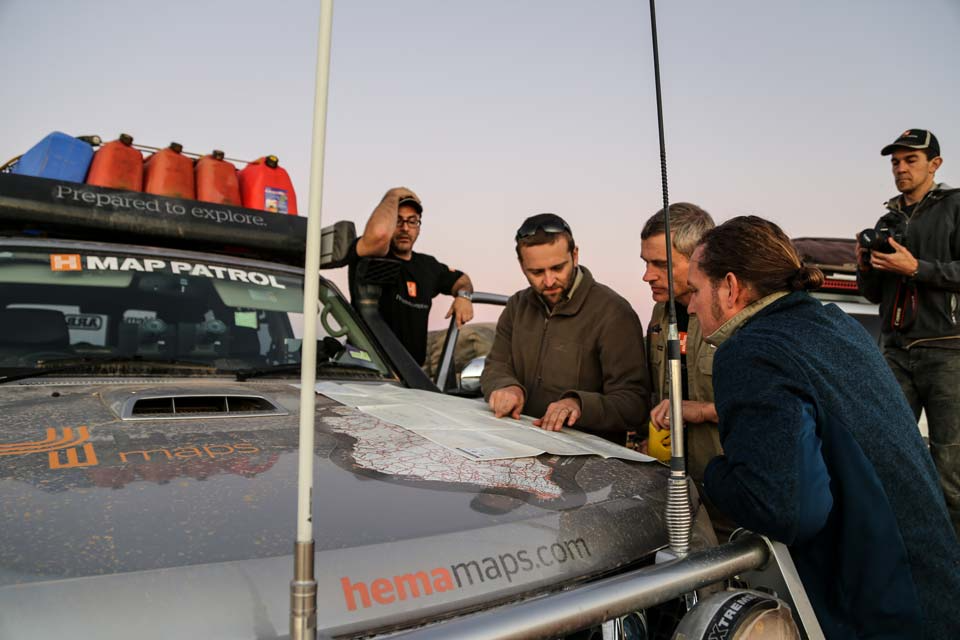
Communication
As with navigation, communication in a massive country with varying topography can be challenging. With all the horror stories you hear of campers going missing, communication is a vital element to ensure your survival when far in the bush away from any civilisation.
There is a huge chunk of land that makes up the majority of Australia sitting without any people and without cellular reception. If you enter this seemingly endless vastness, it’s important you have the right communication system to be able to reach emergency services and other essential contacts.
If you’re heading out bush, you’ll need a radio or a satphone (satellite phone). Although radios are more expensive to set up, they work out cheaper in the long run as they don’t incur ongoing costs. UHF (Ultra High Frequency) radio is the most common for recreational use. You don’t need a licence to purchase a UHF, however, it is not suitable for communication over long distances.
Satphones can be used to make phone calls just like a regular phone, but they communicate directly with satellites rather than cell towers. They’re simple to use and better for private conversations than radios, however, call costs can be high, so it’s usually recommended to use them for emergencies only. Keep in mind that satphones don’t often work in areas of heavy tree cover or in deep gorges — they prefer wide-open skies.
Another option growing more popular by the day is Starlink, a satellite internet constellation operated by American aerospace company SpaceX. Starlink allows caravanners to access the internet in the most remote of locations, really changing the game when it comes to remote internet access and making phone calls over wi-fi.
Essential Safety Equipment
Intense heat, challenging terrain and a bevy of wild and unpredictable fauna make the Australian outback a place to enter with great caution. The two most important pieces of safety equipment all tourers should have on board, we believe, are a first aid kit and a fire extinguisher. The third most important piece is some form of recovery gear — being stuck in the middle of nowhere can be incredibly stressful, but it’s even more stressful if you don’t have the necessary safety equipment on board to get you free.
No trip to the outback (or anywhere, for that matter) is complete without a first aid kit. We recommend the SURVIVAL Vehicle First Aid Kit for all vehicles in Australia. The SURVIVAL Vehicle First Aid Kit is durable, rugged and water-resistant and has been designed with weight and space in mind, without compromising any of the items on your motorist first aid checklist.
Another good idea is to brush up on your skills via a first aid refresher course before heading off. Being able to use the tools you have on board is just as important as having them, so consider a first aid course if you have not recently taken part.

Some other safety non-negotiables you should have on board include a standard toolkit, socket set, an adjustable wrench, a kinetic rope or snatch strap, a standard vehicle jack, a length of chain or tow rope, jump leads, a can of WD-40 (of course), a torch, a length of plastic tubing in case you have to transfer fuel, a long-handled shovel and a portable air compressor to reinflate the tyres after you’re off the beach.
Water and Power Needs
Establishing your water and power needs (and making sure you can meet them) before embarking on a tour is one of the most important pre-trip necessities. Power supply has the potential to make or break your holiday. These days, caravans are sophisticated pieces of machinery. This means their power systems are increasingly sophisticated and prospective buyers need to be educated on the power system’s configuration and how it affects power usage.
Most of your van’s appliances (such as lights, TV and so on) will run on either (or both) 240V mains power or 12V battery power. Others, such as your cooktop, barbecue and perhaps your heater will most likely require gas, while a generator or space heater may use diesel.
All these power sources need to be understood and considered carefully to ensure a successful camping trip — from when and where you’ll access 240V power if needed and how you’ll power your 12V batteries, to where and how you’ll source and carry your additional fuels such as gas or diesel.
The amount of water you can take on board affects your payload and towing, so it’s important you establish the correct amount where you’re not taking too much and overloading your tow vehicle (and therefore using more fuel) and not taking too little where you won’t have enough to go to the loo or run a shower for the duration of your trip.

